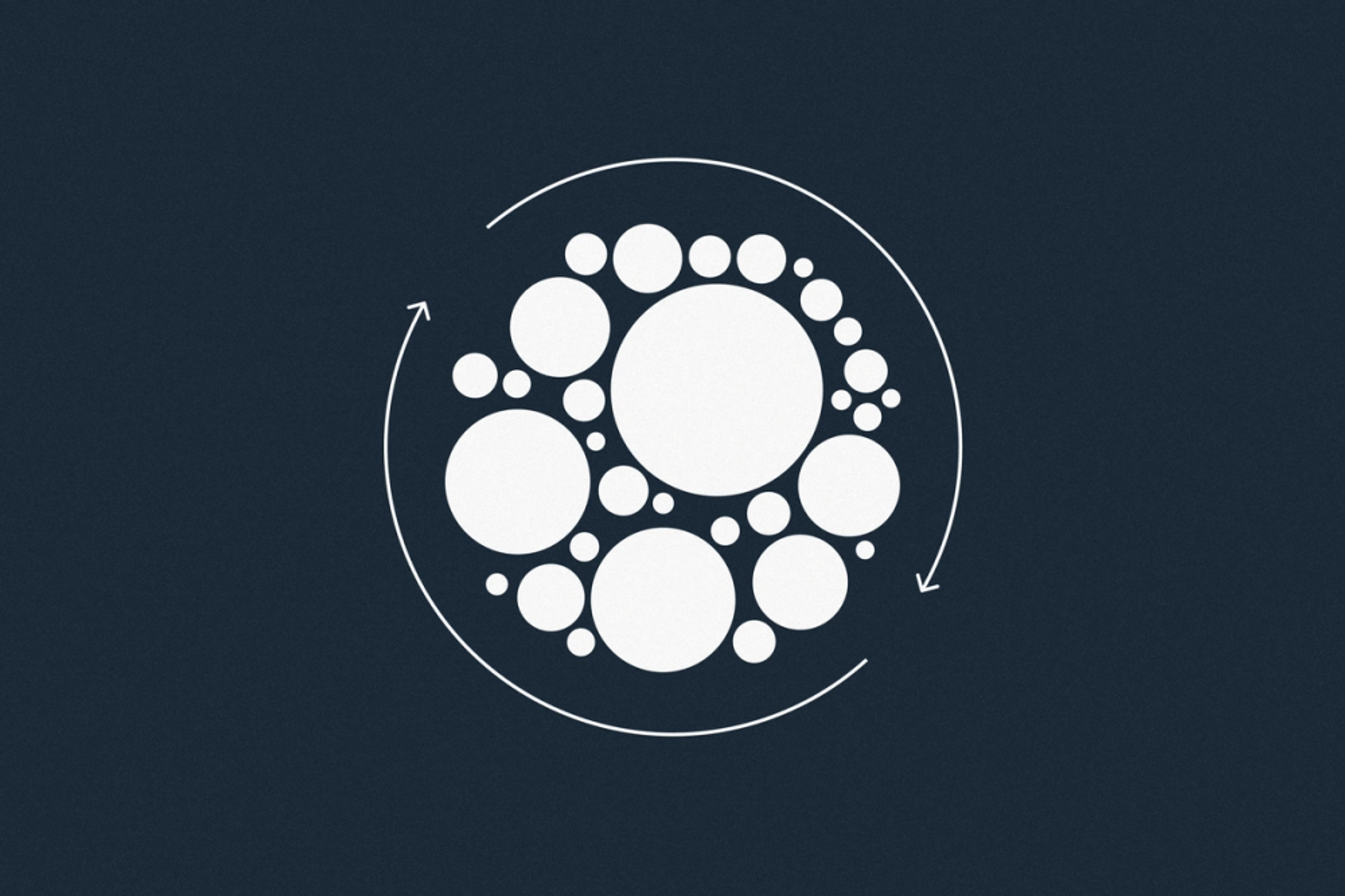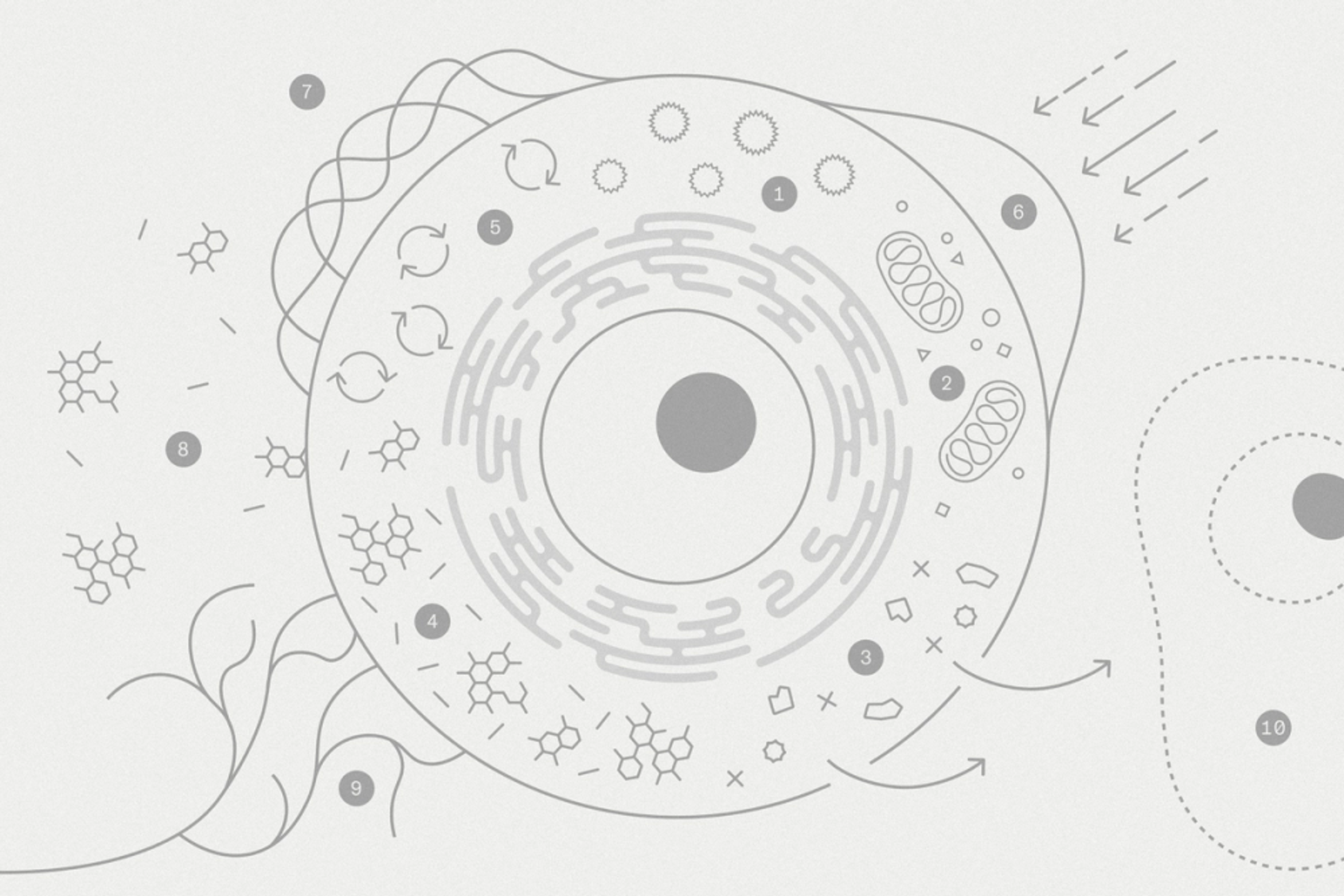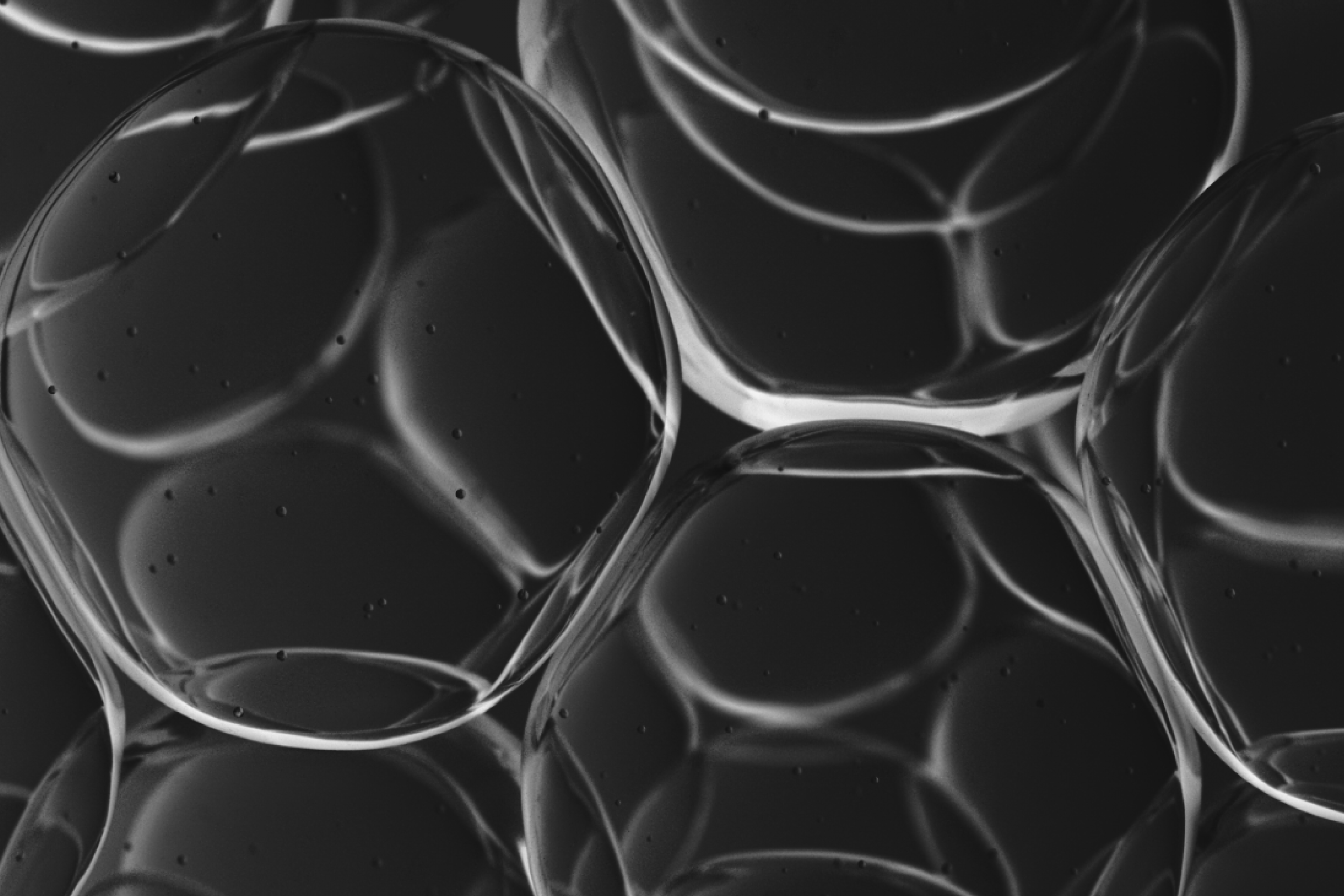Autophagy and Fasting: How to Do It for the Biggest Benefits
Autophagy is your body’s recycling system. Learn about the relationship between autophagy and fasting and tips on how to do it to improve your health.

September 23, 2022
10 min read
Autophagy is our body’s natural way of recycling itself, and is associated with a variety of health benefits. It involves the breakdown of damaged cells into newer, healthy ones. Recent research shows a clear connection between autophagy and fasting, whereby fasting may induce autophagy more quickly.
Autophagy is an evolutionary mechanism our bodies have used for centuries to self-preserve.
The good news is we have the opportunity to help our cells thrive and support autophagy through fasting. In this article you’ll learn about the benefits of autophagy, ways to induce it, tips on how to fast for autophagy, and alternatives to fasting if it’s not for you.
Autophagy 101
The body is made up of trillions of cells. Over time, these cells grow older and can suffer from oxidative stress, which can accelerate aging and cause disease.
Oxidative stress occurs when the body is exposed to harmful molecules in the environment called free radicals, which can lead to damage if there is no protective mechanism to reverse the process.
Autophagy is the body’s way of reversing this process. The word autophagy literally means “self-eating” in Greek. It is the process where our body breaks down old or dysfunctional cells and recycles them into healthier versions. It may sound a bit odd that your body is literally eating itself, but it’s actually quite beneficial and necessary for survival.
The process of autophagy starts when certain cells fuse together and identify damaged cells. Then they work together to break down these cells, destroy them, then reuse parts to regenerate healthy cells.
This entire process occurs on a daily basis naturally as a protective mechanism, but it needs to occur long enough to provide its intended health benefits. This is where the link between autophagy and fasting comes in.
Autophagy benefits
Autophagy has a wide range of benefits, particularly in terms of its anti-aging effects. The process of autophagy can extend our lifespan and keep us young, since it helps our body work most efficiently.

Autophagy benefits are apparent both inside and outside our cells.
Inside the cell:
1. Decreases oxidative stress that accelerates aging.
2. Improves the conversion of nutrients into energy.
3. Boosts waste elimination and helps remove toxins from the body.
4. Breaks down damaged cells and proteins that can cause disease.
5. Recycles proteins into healthier versions.
Outside the cell:
6. Decreases inflammation, a common risk factor for disease.
7. Bolsters skin cell renewal by increasing collagen production.
8. Improves hormonal balance.
9. Supports proper nerve communication and function.
10. Facilitates removal of aging cells.
If you want to enjoy all of these benefits, age gracefully, and keep your skin in optimal shape, there are ways to induce autophagy in the body whenever you want to.
How to induce autophagy
Autophagy can be induced in several ways through specific diet and exercise changes.
Here are the 4 most effective ways to induce autophagy:

Fasting - Fasting is one of the most effective ways to trigger autophagy. Both intermittent fasting and prolonged fasting can increase autophagic activity. A recent study showed those following a time-restricted fasting schedule had improved markers of longevity and increased amounts of autophagy genes.
It’s possible that more extended fasts may lead to even bigger autophagic activity, however this is not easy or necessarily safe for many people to follow.
Continuous Caloric Restriction - Reducing your calories by 10-40% of maintenance needs has also been seen to induce autophagy. Research shows long-term calorie restriction over several years is associated with increased autophagy genes and levels of molecules involved in removing damaged cells.
With reducing calories, the key is to “starve” your cells enough to result in their breakdown while also ensuring nutritional needs are met. Working with a nutrition expert such as a registered dietitian is recommended for this reason.
Exercise - Physical activity also induces autophagy in muscle tissue, especially with high-intensity exercise. Autophagy markers immediately increase after both short bouts of intense exercise and more prolonged moderate-intensity exercise sessions.
Based on research, it seems exercise intensity may be an even bigger predictor of autophagy than more moderate forms of activity.
Consuming Polyphenols - Polyphenols are plant compounds that provide significant health benefits. They can be found in food or supplements, and have been seen to trigger autophagy when consumed. This is thought to be the mechanism behind their potent anti-aging properties.
Taking Urolithin A Supplementation - Urolithin A (UA) is a compound produced from polyphenol breakdown and directly helps destroy damaged cells. But since more than ⅔ of people cannot utilize UA from food, it can be taken in supplement form. Mitopure is a pure form of Urolithin A that supports cell renewal and healthy aging.
All of these are effective strategies to induce autophagy, but it’s important to choose the ones that feel the best for you.
5 Tips to fast for autophagy
If you’re curious about autophagy and fasting, here are 5 tips to experience the biggest autophagy fasting benefits:

Fast for at least 14 hours - You may wonder when does autophagy start when fasting, but the answer is not entirely clear. It takes time for your body to prepare for autophagy and to break down all the recent food you’ve consumed. In order to induce autophagy, at least a 14-hour fast is generally recommended.
If you’re an intermittent faster, this means you will be implementing fasting benefits by the hour, starting with a 14-hour fast and a 10-hour window to eat. Intermittent fasting autophagy is highly individual, and more research is needed into the minimum amount needed to induce autophagy.
Consider extended fasting - It’s possible you can reap even bigger autophagy benefits by fasting for prolonged periods of 24 hours or more. While this may be true, there are safety considerations to keep in mind in doing this, and it may not be appropriate for everyone.
Extended fasting may be especially dangerous for those who take insulin, as this can result in hypoglycemia (low blood sugar).
Always speak with your doctor before starting to determine the best autophagy fasting timeline for you.
Dry fasting autophagy - Dry fasting is a bit different from typical fasting in that you are avoiding both food and liquids during your fasting times. For traditional fasts, you are allowed non-caloric beverages and water. Proponents of dry fasting attest that dry fasting can be more effective for autophagy, as it starves your cells more quickly.
Add certain foods to speed up the process - If you’re wondering what to eat during autophagy fasting, there are a few foods that can help support the process during your eating windows. This includes coffee, green tea, turmeric, and polyphenols such as ellagitannins and ellagic acid. These polyphenols break down into Urolithin A, the primary compound in Mitopure that promotes autophagy.
Listen to your body - Above all else, listen to your body while fasting. If you feel tired, lightheaded, weak, or nauseous - chances are fasting is not for you. Always work with a trained medical professional when fasting, and stop doing it if you experience any side effects.
Autophagy fasting before and after
The process of fasting for autophagy is a complicated one, but it’s helpful to break it down to understand how it generates such beneficial outcomes.

Before autophagy fasting occurs, the body’s cells are often in a damaged state. They contain toxins from the environment, and if the body doesn’t remove them, they become damaged or diseased. This is how the disease process starts, and so catching the problem at its source through autophagy is incredibly effective.
The debate is still out as to how long you have to fast to induce autophagy, but it appears prolonged fasts of 24-48 hours may provide bigger benefits.
After autophagy occurs, the body is able to regenerate itself and undergo repair to become stronger, youthful, and more resilient to disease.
Final words
Autophagy is your body’s way of “eating itself” in order to keep you young, maintain supple skin, and protect you from disease. It is a process you have the power to induce through your daily habits in a way that works for you.
While fasting is one of the most effective methods for inducing autophagy, it’s not for everyone. Eating a continuous calorie-restricted diet, exercising regularly, and adding a polyphenol supplement like Mitopure are all well known methods to induce autophagy in a more sustainable way.
Buy Urolithin A, the active ingredient in Mitopure, and experience the difference in how you feel.
Authors
Melissa Mitri, MS, RD


